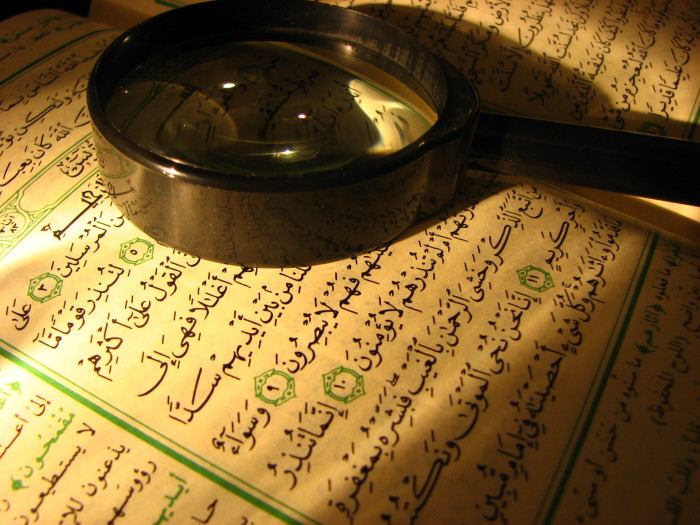A Trip Down the Wahhabism Memory Lane
October 7, 2014 | Nada El Sherbini 1“Don’t be such a Hanbali;” a phrase commonly used amongst us when referring to a strict or conservative opinion. Yet we rarely intend — or actually know — the literal meaning behind it. Similarly, Wahhabis and Wahhabism are two terms that have made quite a few headlines lately, but, again, we rarely know what these terms stand for.
There are different schools of Islamic jurisprudence, or Fiqh, including Maliki and Shafei, but Hanbali refers to the more rigid line of Fiqh as per the interpretations of Imam Ibn Hanbal. Raised by a Hanbali scholar, Muhammad Ibn Abd El-Wahhab set the foundations of Wahhabism, the utmost conservative form of Islamic practices. His teachings and interpretations of Islam have them grown to become influential in Saudi Arabia.
Wahhabism is frequently associated with Salafism, a well-known school of Islamic practices that gained a lot of attention in the recent political changes the country went through.
Some Salafis don’t know how Wahhabism and Salafism are related, or even recognize the Wahhabi school of thought. Ironically however, Islamic scholars and historians sometimes use the terms Wahhabi and Salafi interchangeably as synonyms. Salafis reject the labeling as they believe that Ibn Abd El Wahhab did not introduce something new and that Wahhabism is nothing but a return to the original Islamic practices.
Oneness of Allah, Tawhid, is the cornerstone of the Wahhabi preaching. Although Wahhabism considers the Quran and Hadith as the only credible references for Islamic practices, it acknowledges only the interpretations of the Salaf (ancestors). Wahhabism is often described as the orthodox form of Islam that has no tolerance for other lines of thought and actually considers them as shirk (polytheism) or impure.
Mohamed Ibn Abd Al-Wahhab: “A poor student, arrogant and defiant with his teachers.”
Born in the city of Najd, Saudi Arabia in 1703, Ibn Abd Al-Wahhab was by no means the obedient, traditional student during Islamic studies classes.
In fact, one of the Hanbali muftis of his time, Ibn Humaidi, described Ibn Abd El-Wahhab as “a poor student, arrogant and defiant with his teachers.”
After spending some time in Medina, Ibn Abd El-Wahhab traveled to Basra and Baghdad, Iraq, to continue his Islamic education. It is believed that this is where his ideas of reform and restoration of Islamic practices began to formulate.
Ibn Abd El-Wahhab saw that the back-then Muslim world was full of impurities and malpractices. Under the Ottoman ruling, many practices were permitted as per the interpretations of scholars at the time, and consequently passed on from one generation to another habitually and without questioning.
Ibn Abd El Wahhab denounced such Taqlid (tradition) and believed that practices should remain precisely as they were at the time of the Prophet (PBUH ) and his companions, the Salaf, regardless of the time and place these practices were to be held. Any alterations or updates to the law of jurisprudence results in acts of innovations, bidaa and shirk, he believed.
He saw that these acts were being widely spread due to ignorance and lenient interpretations of the Quran and Hadith. He even advocated interpretations of verses of the Quran contrary to those scholars had been agreed upon for centuries.
Ibn Abd El-Wahhab decided to take upon his shoulders the task of purifying Islam from such acts and of propagating the true meaning of tawhid. As his thoughts started to spread upon his return to Najd, opposition started to line up. His followers were far fewer than his show-stoppers – who included his own Hanbali scholar, father and brother.
Ibn Abd El Wahhab started with the forbidding of grave worshipping and called for the enforcement of the law of stoning adulteresses to death, practices that had been long forgotten and neglected by Muftis of the time.
Exile and the golden political-religious pact
As the influence of Ibn Abd El Wahhab increased over the people of Najd, the anger of tribal chiefs piled and they decided to expel him from his hometown.
Muhammad Bin Saud of Diriyah immediately took the opportunity of welcoming the by-then-famous Imam to stay in his city. The invitation served Ibn Abd El-Wahhab at a time when he was seeking sponsorship to spread his ideology. The common interest Bin Saud and Ibn Abd El Wahhab had to one another resulted in one of the most famous political-religious pacts in history.
The deal was that Bin Saud was to take on the teachings of Abd El-Wahhab and propagate for the Wahhabi school of thought during his tribal invasions. In return, Ibn Abd El-Wahhab would propagate the fine morals of Bin Saud, bringing him more popularity and aid in conquering as much land from the Peninsula as possible, eventually making him the utmost powerful tribal leader.
The powerful pact marrying religious influence and political — and consequently financial — power to one another resulted in the announcement of the First Saudi State, Diriyah.
Following the conquering of Najd and eradication of Shi’a Practices, in 1744 Bin Saud was announced as the leader of the Muslim community and Ibn Abd El-Wahhab as the decision maker in religious matters.
Bin Saud took over control of Hejaz and the Peninsula, implementing — if not enforcing — the teachings of Ibn Abd El-Wahhab. Ibn Abd El Wahhab combated the Taqlid (traditions) of Ottomans as the Ottoman Empire collapsed and the government established its Wahhabi enforcement arm, the Commission for the Promotion of Virtue and Prevention of Vice.
Petro-Islam and the spread of Wahhabism beyond Saudi Arabia
Wahhabism gained more popularity with the tripling of oil prices in the mid-1970s, a notion often referred to as “petro-Islam.”
The Wahhabism influence reached Egypt during the 1980s as Egyptian workers migrated to Saudi Arabia to work in the then-expanding economy after the open-door policy was implemented, bringing back Salafi influences and beliefs.
The Saudi government invests billions each year to spread the Wahhabi line of thought throughout the entire world through Wahhabi preaching institutions, Imam Trainings, literature, children madrases (Islamic schools), Islamic centers, mass media and the conversion of non-Muslim expats living in Saudi Arabia.
The descendants of Ibn Abd El Wahhab, Al Ash Sheikh, inherited his religious authority in Saudi Arabia and led the scholars, ulama, of the Saudi State. Today Al Ash Sheikh share the prestigious status of the royal family, Al Saud, while the latter retain their political authority.
Tags
religion-
Very interesting article!!



















Comments